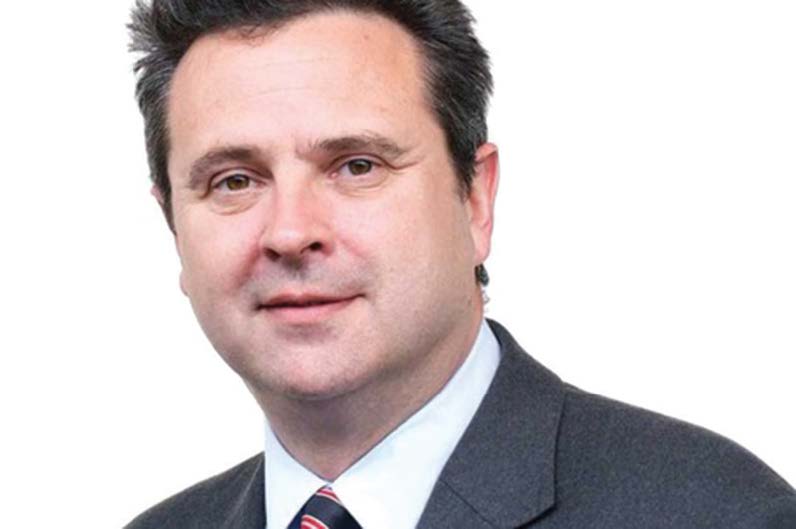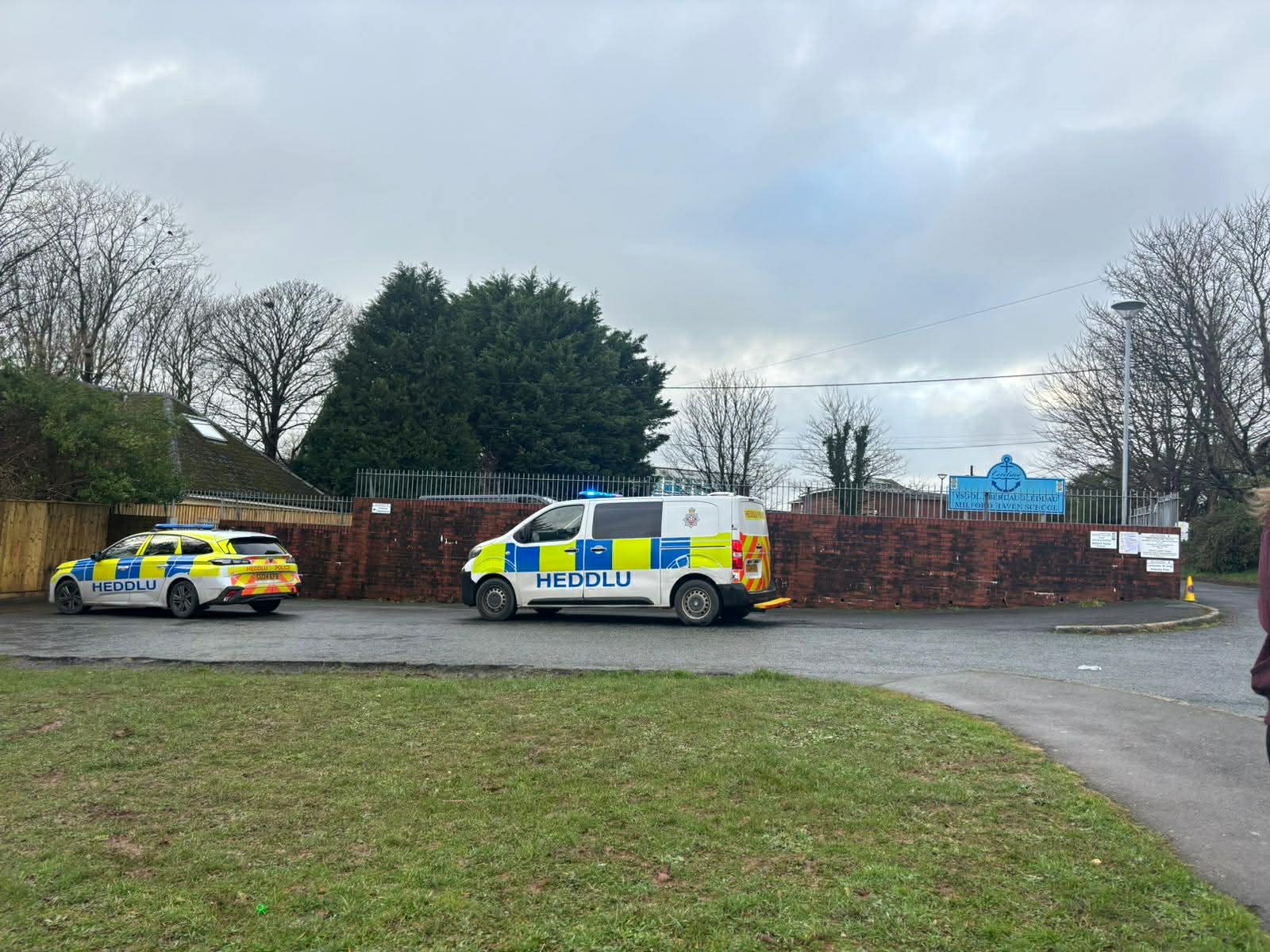Education
Minister calls time on Initial Teacher Training


Huw Lewis: ‘We must deliver improvements’
EDUCATION MINISTER, Huw Lewis has announced he is to reorganise the whole system of initial teacher education training in Wales.
The Minister’s announcement follows publication of a critical Estyn report on the North and Mid Wales Centre for Teacher Education which the Minister has described as “very disappointing”.
Estyn’s report concludes that both the North and Mid Wales Centre’s performance and its prospects for improvement are unsatisfactory. It also identifies aspects where the centre is failing to comply with statutory requirement for initial education teacher training.
The Minister said: “The North and Mid Wales Centre for Teacher Education has had some two years since shortcomings were identified to develop and improve its provision. However this report shows the necessary improvement has not been made. Frankly, this is not good enough.
“This latest report leaves me in no doubt that more needs to be done to accelerate the process of improvement in ITET provision across the whole of Wales.
“We need an ITET sector that can act as a key driver in building workforce capacity, particularly as we prepare for the new Curriculum for Wales. This is something that the school sector, local authorities, Consortia and the public are all, quite rightly, calling for.
“I am meeting Vice Chancellors in November, including those leading on current ITET and will be clear that I am calling time on the current system of initial teacher education training in Wales and moving to a focussed improvement plan, designed and delivered across the education system.
“Going forward, participation in genuine collaboration will be a requirement for any institution who wishes to play a part in the initial training of teachers.
“We know it is possible to deliver radical change in a short time frame – the recent news about the progress of the South East Wales Centre for Teacher Education and Training proves that.
“But improvements cannot stop there. We simply must deliver systematic improvements, with more effective collaboration between ITET centres in Wales, more partnership with Consortia, local authorities and schools, more learning from the best from elsewhere and more challenge.”
In 2009, following a report by Professor John Furlong, the Welsh Government reorganised Initial Teacher Training in Wales into three centres: one based in North Wales, one serving South-East Wales and the other Mid and West Wales.
At the time the Welsh Government claimed that concentrating teacher training and education into fewer centres would drive up standards of training and produce consistency of results.
Critical reports have, however, followed into both South East Wales’ provision and that of North Wales.
While a recent report from Estyn demonstrated some improvement in South East Wales’ centre, the same report concluded that ‘the centre was “not able to show the impact of the systems on trainees’ outcomes’
Huw Lewis has suggested that further radical reform is required to change the system again: “The landscape of ITET in Wales will be different. For those ITET centres that genuinely want to work with us to improve and provide genuinely sector leading practice then the door is open but – if you are not prepared to raise your game then you will not be part of our future vision for Wales.”
The Minister announced that he and Professor John Furlong would be holding two summits in December and January to engage the ITET sector in challenging reform.
This complements the task and finish group that Professor John Furlong is already leading to revise current ITET statutory criteria for accreditation and to implement change so the ITET system is more robust and fit for purpose.
The reform of ITET in Wales, the effective delivery of the New Deal and the implementation of a new curriculum for Wales are key parts of the Welsh Government’s ongoing programme for Education reform.
The Minister’s announcement has received short-shrift from opposition AMs, who have pointed out that the Welsh Government appears only now to be seeking to remedy flaws in the system of teacher training to which its own 2009 reorganisation of the sector has contributed.
Focusing on the challenges of equipping teachers to deliver a new curriculum, Aled Roberts AM, Welsh Liberal Democrat Shadow Minister said: “There is a widespread consensus that the Labour Government in Wales has failed to address the fact that teacher training has not been of a high enough standard to serve the needs of Wales either now or in the future.
“The Estyn report into the North and Mid Wales centres at Bangor and Aberystwyth is extremely disappointing and is the most recent example of reports raising concerns with regard to the quality of training provision in Wales.
“There are major curriculum reforms on the horizon in Wales and we need a profession that is properly equipped for such change and which is in receipt of ongoing support through continuing professional development following qualification.
“The Welsh Liberal Democrats believe in empowering teachers to be able to take a lead so they have more responsibility in innovation and are able to work collaboratively with other teachers in the development of their practice. We would also look to attract and increase the quality of new entrants to the teaching profession.”
Making concrete proposals for the future of teacher training, Mid and West AM Plaid Cymru’s Shadow Minister for Education, Skills and the Welsh Language Simon Thomas, a Carmarthen West and South Pembrokeshire candidate said: “We have had Labour Education Ministers since 1997 responsible for the education of our children. This unsatisfactory report into the North and Mid Wales Centre for Teacher Education is another example of a culture of complacency in Cardiff Bay.
“A Plaid Cymru Welsh Government would give our teachers and classroom assistants the time to teach so that they can focus on ensuring the development of core skills in schools.
“By working with teaching unions and staff, Plaid Cymru will reduce red tape and bureaucracy so that head-teachers can lead their schools and more time is spent teaching children, rather than completing paperwork. The best way to spread good teaching practice is between schools, peer to peer.
“We will consider for all teachers to be educated at a Masters Level with a focus on classroom techniques. We will look to establish one professional-led body to deal with Continuous Professional Development to take politics out of education as happened in Scotland.”
“We need the powers over pay, terms and conditions to facilitate the best allocation of resources – it is only a Plaid Cymru Welsh Government that can deliver this.”
Welsh Conservative Shadow Minister for Education, Angela Burns AM, told us: “We’ve long said teacher training in Labour-run Wales needs urgent improvement.
“It’s clear significant failings persist and I am extremely unhappy to read of another poor Estyn report on the North and Mid Wales Centre.
“Changes are not happening quickly enough and it’s our pupils and hard-working staff who are taking the brunt of it.
“While Labour’s minister is taking some steps to address the clear problems, it’s simply not fast enough.
“16 years of Labour rule have left our education system in tatters. That requires fresh thinking and a new approach.”
Crime
Teacher discharged as police step back from Milford Haven school after assault

Teenager remains in custody as school closes and patrols increased to reassure community
POLICE have confirmed they are no longer stationed at Milford Haven School after a teacher was assaulted by a pupil on Thursday afternoon (Feb 5), as the injured member of staff has now been discharged from hospital.
In a joint statement issued by Dyfed-Powys Police, Pembrokeshire County Council and Hywel Dda University Health Board, Superintendent Chris Neve said swift action had been taken to protect pupils and staff.
He said: “Police are no longer in attendance at Milford Haven Comprehensive School, following a report of the assault of a teacher at approx. 3.20pm this afternoon.
“I would like to reassure parents, and the wider community, that swift action was taken to both safeguard pupils and teachers, and to trace the suspect as soon as this report was received.
“The teacher has now been discharged from hospital and is being supported by specialist officers. All pupils at the location were safe, and all returned home unharmed. A 15-year-old boy has been arrested and remains in police custody as enquiries continue.
“You will see a higher than usual police presence in the area over the coming days – these will be dedicated patrols to provide further reassurance.”
The injured teacher was earlier taken to hospital by road ambulance.
An immediate lockdown was put in place at the school while emergency services responded. Most pupils had already left for the day, but those still on site were secured inside classrooms and offices as a precaution.
School closed on Friday
Council leader Cllr Jon Harvey said the school would be closed to pupils on Friday to allow support and safety measures to continue.
He said: “We would like to thank staff and pupils at Milford Haven School for implementing a swift and effective lockdown in response to this incident.
“While the school will be closed to pupils tomorrow, if there are any learners who require additional support they are welcome to attend and there will also be support for staff on site.
“We’d like to reassure learners and parents, along with the wider community, that all measures to ensure safety are being taken.”
The health board added that anyone needing urgent mental health support can call NHS 111 and press option 2 for 24-hour assistance.
National spotlight
The incident has drawn national media attention.
BBC News broadcast live from the school gates during its Ten O’Clock News bulletin, while ITV News and several national titles also covered developments.
Journalists from a number of UK outlets, including The Sun, contacted The Herald as events unfolded, with several Welsh and national publishers using photographs first taken by Herald reporters.
Residents said the scale of coverage was unprecedented for the normally quiet port town.
Police enquiries are continuing.
Photo caption:
Police outside Milford Haven School following Thursday’s incident (Pics: Herald).
Education
Family warns school move could harm child with ultra-rare condition

As closure looms, campaigners say Meidrim pupils thrive in ‘caring community’ as council consultation raises fears for vulnerable learners
A SMALL village primary school at the heart of rural Carmarthenshire is at the centre of a growing campaign to prevent its closure, with supporters warning that vulnerable children could suffer serious consequences if it shuts.

The Cymdeithas yr Iaith has backed efforts to secure the future of Ysgol Bentre Gymraeg Meidrim, describing small rural schools as “caring communities” that provide vital stability for children with additional needs.
At the centre of the case is pupil Tommy Webber, who lives with Bloom Syndrome — an ultra-rare genetic condition which causes complex medical issues and additional learning needs. He is believed to be the only child in Wales diagnosed with the condition.
Medical professionals have advised the school that continuity, routine and trusted relationships are essential for Tommy’s wellbeing. Any disruption — including changing schools, longer daily travel or unfamiliar staff — could have a negative impact on his health, emotional security and educational progress.
Supporters say the small, close-knit nature of Meidrim has allowed staff to provide consistent, personalised care that would be difficult to replicate elsewhere.

However, Carmarthenshire County Council opened a statutory consultation on Thursday (Jan 16) on proposals to close the school, prompting concern from parents, campaigners and language groups.
Speaking on behalf of the Carmarthen region, Cymdeithas yr Iaith representative Sioned Elin said Tommy’s experience reflects a wider truth about the role of small rural schools.
“Tommy’s story shows how a small school can be a safe haven for children with additional needs,” she said. “Education here is genuinely child-centred, and pupils are supported as part of a caring Welsh-speaking community.
“In the same school there is also a deaf pupil, and the other children have learned some sign language so they can communicate with her. That demonstrates how this kind of environment benefits every child, not just one.”
She added that decisions about closures should not be based solely on budgets or pupil numbers.
“The impact cannot be measured purely in financial terms. The question must be whether any alternative provision can truly meet the needs of children who rely on stability and familiarity every day.”
Campaigners argue that losing the school would not only affect education standards but would also weaken the Welsh language and the social fabric of the village.
A supporting letter from hospital clinicians has been submitted as part of the consultation process.
Residents are now urging the council to recognise the wider value of small rural schools before making a final decision.
Education
Language commissioner launches probe into school closure impact on Welsh

THE WELSH Language Commissioner has launched a formal investigation into claims that the proposed closure of a rural Carmarthenshire primary school did not properly assess the impact on the Welsh language.
Campaign group Cymdeithas yr Iaith confirmed this week that the Welsh Language Commissioner will examine whether Carmarthenshire County Council complied with its legal duties when producing a language impact assessment linked to plans to close Ysgol Llansteffan.
The council issued a statutory notice last year proposing to shut the village school at the end of the summer term as part of wider education reorganisation. A final decision had been expected this spring.
However, the investigation now creates fresh uncertainty over the timetable.

Complaint over ‘insufficient assessment’
Cymdeithas yr Iaith says it submitted a formal complaint arguing that the council failed to produce a sufficiently detailed assessment of how the closure could affect Welsh-medium education and the wider Welsh-speaking community.
The group claims the authority selectively used data to support closure rather than examining all available evidence objectively.
Two key concerns were raised.
Firstly, campaigners argue there may not be enough places in neighbouring Welsh-medium schools to accommodate pupils from Llansteffan and nearby housing developments, potentially forcing some families into English-medium provision.
Secondly, they say the assessment did not meaningfully consider the school’s role as a community hub or explore ways the site could generate income and support local Welsh-language activities.
On behalf of local members, Ffred Ffransis said: “There will not be places for all the Llansteffan children, nor for the children of the new housing estates, in other Welsh-medium schools in the area.
“The most cost-effective way of providing sufficient places locally in Welsh-medium education is by keeping open Ysgol Llansteffan and making better use of the buildings, including environmental education and community use.”
Formal investigation
In a letter to the group, the commissioner confirmed an investigation will be held under Section 71 of the Welsh Language Measure to determine whether the council complied with Welsh language standards.
The probe could take up to three months.
Campaigners believe this may delay implementation of the closure and could require the council to revisit its assessment and potentially carry out a fresh statutory consultation.
Ffransis said: “Even if the council now decided to make a full and meaningful assessment, there would likely have to be a new consultation. The original decision may have been taken on a faulty basis.”
He added that similar concerns had been raised about language impact assessments connected to other proposed school closures in the county.
Council position
The council has previously said that school reorganisation proposals are driven by falling pupil numbers, financial pressures and the need to ensure sustainable, high-quality education.
Authorities across Wales have faced difficult decisions in recent years as rural rolls decline and building maintenance costs rise.
It is expected the council will respond formally to the commissioner’s investigation in due course.
What happens next
If the commissioner finds that language standards were not properly followed, enforcement steps could be taken and the process delayed or revisited.
For families in Llansteffan, the outcome may determine whether their local Welsh-medium school remains open beyond the summer term.
The Herald has contacted Carmarthenshire County Council for comment.
Further updates will follow as the investigation progresses.
-

 Crime2 days ago
Crime2 days agoSex offender jailed after living off grid in Pembrokeshire and refusing to register
-

 Health14 hours ago
Health14 hours agoHealth board targets rise in steroid and gym drug use across west Wales
-

 News3 days ago
News3 days agoPrincess of Wales visits historic Pembrokeshire woollen mill
-

 Crime7 days ago
Crime7 days agoPembroke man accused of child sex offences sent to Swansea Crown Court
-

 Health5 days ago
Health5 days agoDoctor struck off after sexual misconduct findings at Withybush Hospital
-

 Crime16 hours ago
Crime16 hours agoTeacher injured and teenager arrested for attempted murder at Milford Haven School
-

 Community7 days ago
Community7 days ago50s women threaten legal action over pension compensation refusal
-

 Education6 days ago
Education6 days agoIndustry insight helps marine cadets chart career course



























